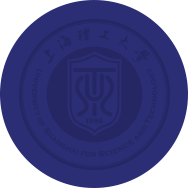Recently, Ngayua Esther Nanzayi, who is an international student from USST, and Prof. Zhao Laijun, Dean of Business School, made their important statements about the imapcts on economy exerted by Covid-19 and suggestions for Kenyan future economy in a Kenyan newspaper The Star (The Star is a daily newspaper based in Nairobi. It was launched in July 2007 as the Nairobi Star and later rebranded as The Star in 2009.The Star's circulation was around 15,000-20,000 in 2010 gainst total Kenyan newspaper circulation in 2010 of around 320,000). The comment is titled "Covid-19 a Catalyst for online service industry":
The 21st century has seen a number of disease outbreaks that have had a major impact around the world. They include Severe Acute Respiratory Syndrome (SARS) in 2002, Middle East Respiratory Syndrome (MERS) in 2012, Ebola in 2012, and now Covid-19.
The number of recorded Covid-19 cases continues to rise by the day in Kenya and around the world. And Kenya, just like many other affected countries, has taken certain measures to protect lives. As a result, the economy has taken a major blow as productivity declines. This epidemic has brought to the fore the need to transform the economy.
Our victory over epidemics is inseparable from scientific development and technological innovation. The application of new technologies will provide shock-absorbers against future epidemics and promote the development of new industries.
Changes in people's consumption psychology and consumption habits will force the transformation and upgrading of traditional industries and create room for emerging ones. During the SARS crisis, China's internet economy allowed for the emergence of the online service industry. Kenya can learn from this as this epidemic will force some industries to apply new business models in order to adapt to consumer needs and promote spending.
Scholars believe that the epidemic will bring about revolutionary development, especially with the combination of AI, big data, 5G and blockchain. Some industries that have potential for growth include the medical industry. The most common mobile wearable devices in Kenya are smartphones and smartwatches. A study by the Communications Authority in 2018 indicates that 87 per cent of the total population are active mobile users.
This has created an opportunity for harnessing the power of technology in improving healthcare. Isolating at home has created a demand for online medical services and an opportunity to develop internet medical care. With online consultations and delivery of medicines, users can complete the basic closed-loop treatment without leaving home. Besides, more people are now paying attention to their health and the medical industry can seize this opportunity to provide more products and services online.
To reduce the spread of Covid-19, the state has encouraged online studying and working from home using video conferencing applications such as zoom, welink, etc. Soon this will be the norm and companies will have to create new models to take most of their work online as the remote office industry gains momentum. The video game industry has also experienced development during this time and helped to keep both students and adults at home and entertained.
Globally and locally, online education has steadily been growing but this epidemic has acted as a catalyst. With Kenya's vigorous investment in internet infrastructure, the backbone broadband network capacity has increased significantly as well as broadband network speed. Coupled with the development of AI and VR technologies, online education will continue to grow.
The epidemic has also served as a catalyst for e-commerce, as everyone is encouraged to practice isolation. Companies now have to adapt their logistics and supply chain systems to meet consumer demand, bearing in mind they form a strong potential market for post-pandemic times. The incorporation of intelligent express cabinets during distribution will ensure contactless delivery of products to the consumers.
In conclusion, the degree of the pandemic’s impact on the economy depends on prevention and control capabilities, as well as their effects. In order to prevent the rapid spread of infectious diseases, certain measures such as social distancing have to be taken, consequently reducing economic activity.
It is therefore paramount to look into the future and transform various industries. Consumption chains, industrial chains, supply chains, capital chains, circulation chains, etc, are highly connected and are the basic elements of a dynamic economic cycle. Accelerating the promotion and application of modern information technology in various industries is paramount.
Kenya can focus on gathering resources and put in place policies to further support the development of the "Internet +" industry and the application of 5G, artificial intelligence, big data, blockchain and other technologies in commerce, tourism, education and medicine hence promoting industrial connectivity. Hopefully with the application of these new technologies, Kenya’s economy will be better prepared for a future epidemic.
Source:https://www.the-star.co.ke/opinion/columnists/2020-06-15-covid-19-a-catalyst-for-online-service-industry/
Professor Zhao is Dean of Business School at the University of Shanghai for Science and Technology
Nanzayi is a master's student at the University of Shanghai for Science and Technology

 Home
·
News & Events
·
Content
Home
·
News & Events
·
Content

